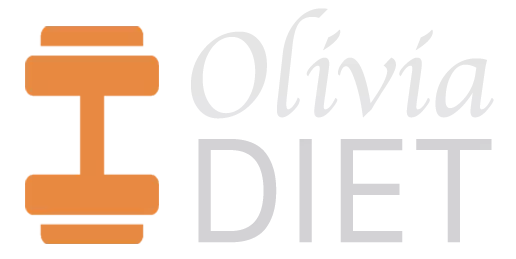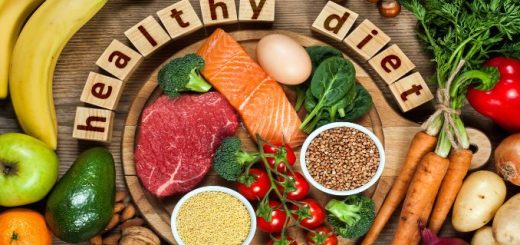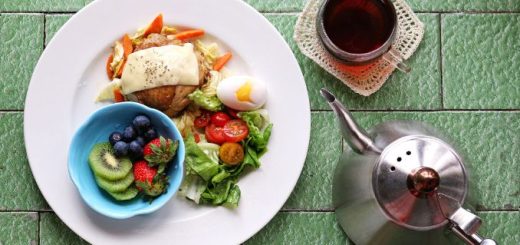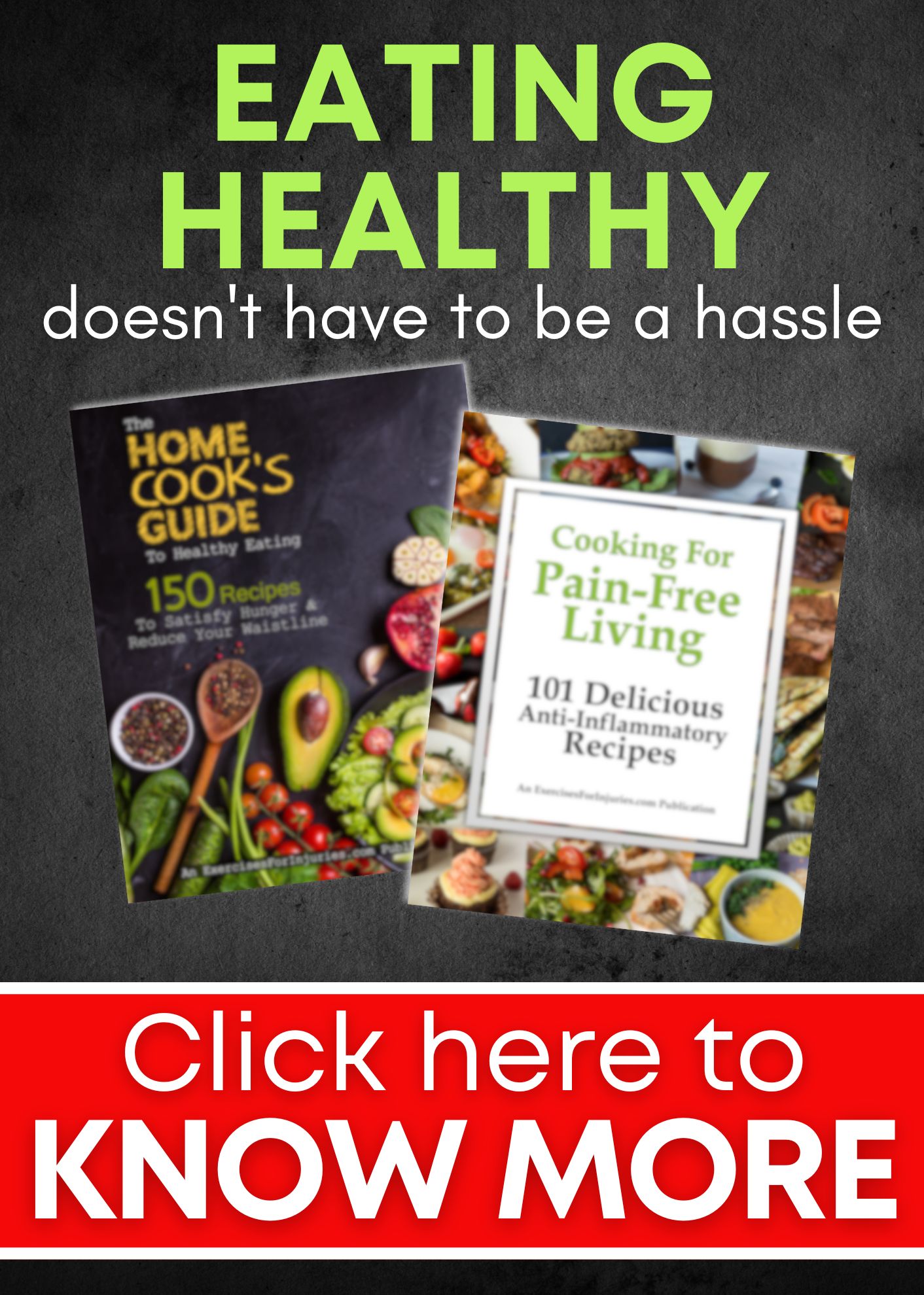Best Stiff Person Syndrome Diet: What Works Best
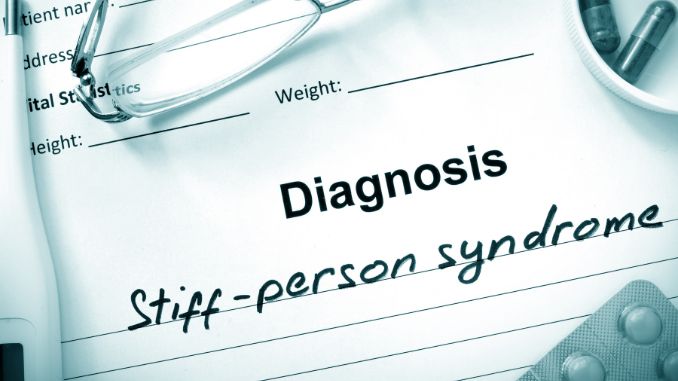
Last updated on April 11th, 2025 at 08:29 pm
Managing Stiff Person Syndrome (SPS) through diet is crucial for symptom control and overall well-being. While there's no one-size-fits-all plan, minimizing triggers and promoting health is vital.
Some find relief with a gluten-free diet, as gluten sensitivity can exacerbate SPS symptoms.
Incorporating anti-inflammatory foods like fatty fish, berries, greens, turmeric, and olive oil may reduce inflammation. Vitamin D and magnesium intake can also help alleviate muscle stiffness. Meal planning involves:
- Selecting whole foods.
- Experimenting with SPS-friendly recipes.
- Reading food labels for potential triggers.
It is necessary to consult with a healthcare specialist or a registered dietitian to receive personalized guidance. A holistic approach to SPS management includes medication, therapy, stress management, and lifestyle adjustments.
What is Stiff Person Syndrome (SPS)?
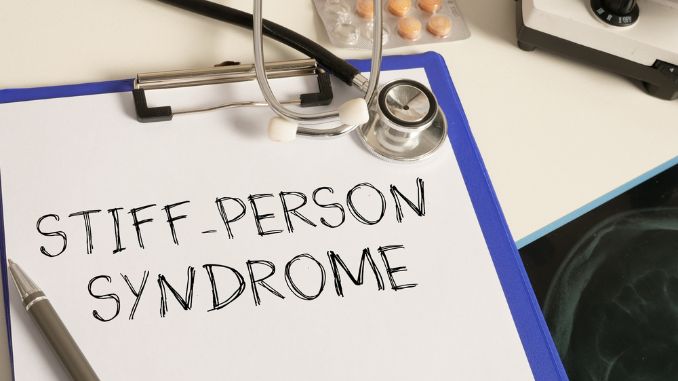
Stiff Person Syndrome (SPS) is a rare autoimmune disease [¹] marked by frequent muscle stiffness and painful spasms, leading to muscle rigidity and restricted, painful movement.
This condition is believed to arise from an autoimmune response where the immune system mistakenly targets cells that control muscle movement.
The precise cause of SPS is still uncertain, but it is thought to be influenced by a mix of genetic and environmental factors. Symptoms commonly include muscle stiffness, painful spasms, difficulty walking, and increased sensitivity to stimuli.
Effective management of SPS involves a holistic approach, utilizing medications, physical therapy, and lifestyle modifications like dietary changes.
Understanding the Importance of Diet in Managing SPS
Can Stiff person syndrome can be cured by diet?
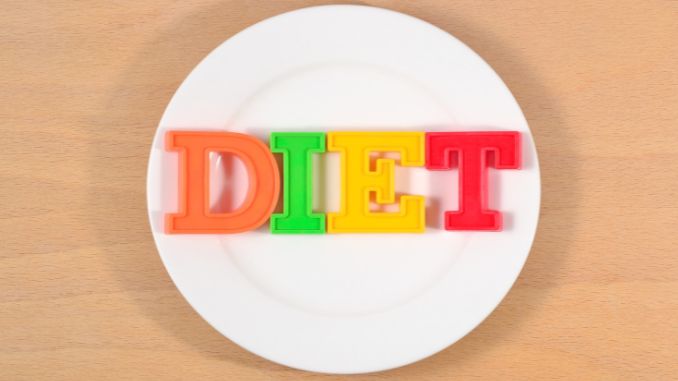
- Role of Diet: While diet alone cannot cure Stiff Person Syndrome (SPS), it plays a crucial role in managing symptoms and enhancing overall well-being.
- Identifying Triggers: It's important for individuals with SPS to identify and avoid dietary triggers that exacerbate symptoms.
- Incorporating Nutrients: Including anti-inflammatory foods and ensuring sufficient intake of essential nutrients can help support overall health and may alleviate symptoms of SPS.
- Dietary Strategies: Careful consideration of diet can significantly impact the frequency and intensity of SPS symptoms, making it a key component of effective symptom management.
What is the Best Diet for Stiff Person Syndrome?
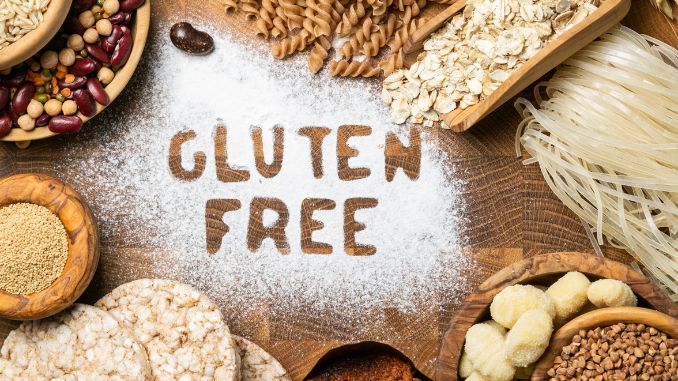
The optimal diet for Stiff man Syndrome (SPS) focuses on minimizing triggers and supporting overall health by considering neurotransmitters and their precursors.
The enzyme glutamic acid decarboxylase (GAD) is crucial in SPS, converting glutamate into GABA, which promotes relaxation. A deficiency in GAD can exacerbate SPS symptoms due to an imbalance in excitatory and inhibitory signals in the nervous system.
Although no clinical trials are confirming a specific diet for SPS, certain dietary adjustments can help:
- Gluten-Free Diet: Some individuals with SPS may benefit from a gluten-free diet [²], which can reduce muscle stiffness and spasms by decreasing autoimmune reactions that impact GAD activity.
- Anti-Inflammatory Foods: Incorporating foods rich in omega-3 fatty acids, like fatty fish, walnuts, and flaxseeds, as well as fruits, vegetables, whole grains, and healthy fats like olive oil, can help reduce inflammation. This may support neurotransmitter balance and alleviate SPS symptoms.
It's important to experiment with these dietary approaches and consult with healthcare professionals before making significant changes to find what best alleviates individual symptoms.
Foods to Avoid in a Stiff Person Syndrome Diet
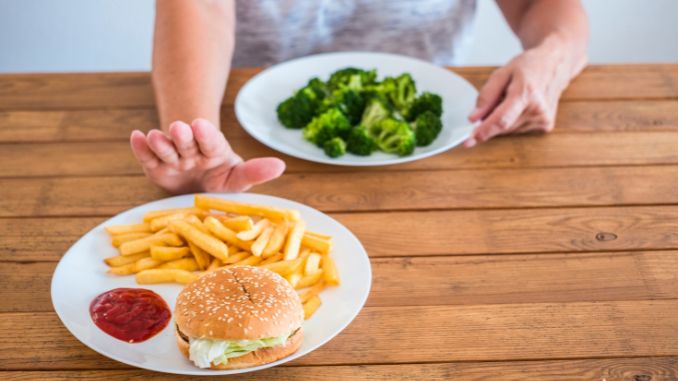
While there isn't an official list of foods to avoid for Stiff Person Syndrome (SPS), certain dietary triggers may worsen symptoms.
It's important to monitor how your body reacts to different foods and adjust your diet accordingly. Potential triggers to consider avoiding include:
- Processed Foods: These often contain additives and artificial ingredients that can trigger inflammation and exacerbate symptoms.
- High-Sodium Foods: Excessive sodium can lead to fluid retention and increased blood pressure, potentially worsening muscle stiffness.
- Sugar and Sugary Beverages: High sugar intake may increase inflammation and contribute to muscle rigidity and spasms.
- Alcohol: Alcohol can negatively affect the nervous system and muscle function, worsening SPS symptoms for some people.
- Caffeine: As a stimulant, caffeine can increase muscle spasms and aggravate SPS symptoms.
Individual responses to different foods can vary, so it's crucial to listen to your body and tailor your diet to your specific needs and preferences
Benefits of a Gluten-free Diet for SPS Patients
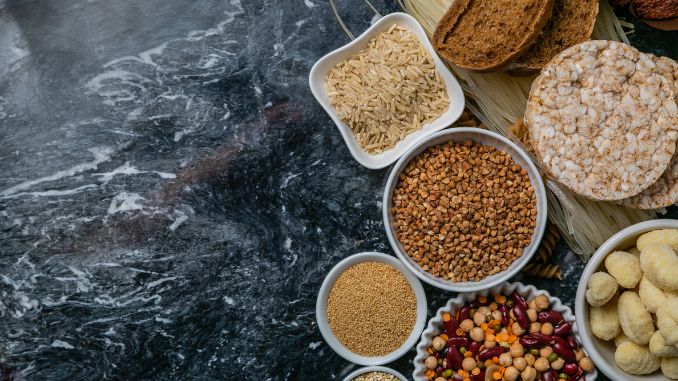
- Gluten-Free Diet Benefits: A gluten-free diet may help manage Stiff Person Syndrome (SPS) symptoms in some individuals, particularly those with celiac disease [³] or gluten sensitivity, as gluten can trigger inflammation and exacerbate symptoms.
- Potential Improvements: Eliminating gluten may lead to reduced muscle stiffness, improved digestion, and enhanced overall well-being for those sensitive to it.
- Individual Variability: Not all individuals with SPS are sensitive to gluten; thus, a gluten-free diet might not be necessary for everyone.
- Professional Guidance Recommended: It is crucial to consult with a healthcare professional before making any significant dietary changes, including adopting a gluten-free diet.
Incorporating Anti-inflammatory Foods in your SPS Diet
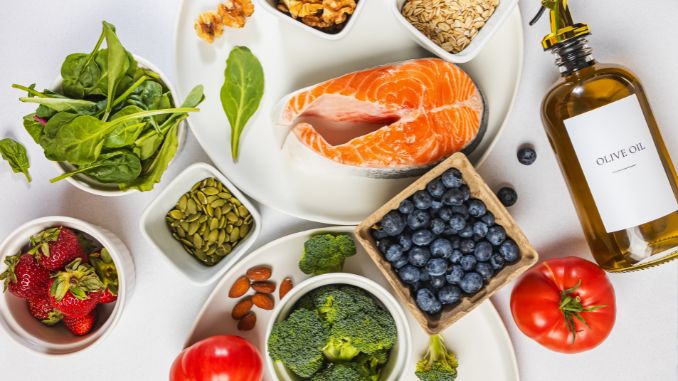
Inflammation plays a significant role in Stiff Person Syndrome, and incorporating anti-inflammatory foods into your diet can help reduce inflammation and alleviate your stiff person syndrome symptoms. Here are some key anti-inflammatory foods to consider:
- Fatty fish: Rich in omega-3 fatty acids, fatty fish like salmon, mackerel, and sardines have potent anti-inflammatory properties.
- Berries: Packed with antioxidants, berries like blueberries, strawberries, and raspberries can help combat inflammation and support overall health.
- Leafy green vegetables: Spinach, kale, and other leafy greens are rich in vitamins, minerals, and antioxidants that can help reduce inflammation.
- Turmeric: This vibrant yellow spice contains curcumin, a compound known for its anti-inflammatory effects. Adding turmeric to your meals or consuming turmeric tea can be beneficial.
- Olive oil: Rich in monounsaturated fats and antioxidants, olive oil has been shown to have anti-inflammatory properties. Use it as a dressing or for cooking instead of unhealthy fats.
Incorporating these anti-inflammatory foods into your SPS diet can offer numerous health benefits and help alleviate symptoms. However, it's essential to maintain a well-rounded and balanced diet to ensure adequate nutrient intake.
The Impact of Vitamin D and Magnesium in Managing SPS Symptoms
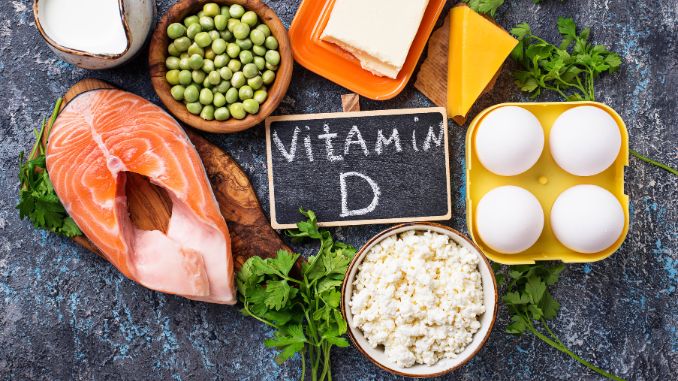
In managing Stiff Person Syndrome (SPS) symptoms, certain nutrients like Vitamin D and magnesium are beneficial:
- Vitamin D: Essential for bone, immune, and muscle health. It may help reduce muscle stiffness and spasms in SPS patients. Sources include sunlight exposure, fatty fish, fortified dairy, egg yolks, and supplements.
- Magnesium: Involved in muscle relaxation and function. Adequate intake can help treat muscle spasms and stiffness. Sources include nuts, seeds, legumes, whole grains, and leafy greens. Consult a healthcare professional before starting supplements.
These nutrients support overall well-being and may specifically aid in reducing SPS symptoms.
Tips for Meal Planning and Grocery Shopping for SPS Patients
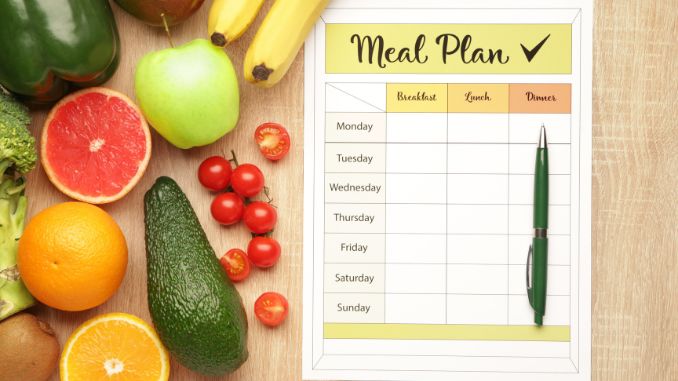
Meal planning and grocery shopping can be manageable for those with Stiff Person Syndrome with the right strategies. Here are some tips to create a nutritious and supportive meal plan:
- Pre-Plan Meals: Decide on meals for the week ahead to streamline shopping and cooking.
- List Essentials: Make a grocery list to avoid forgetting important ingredients.
- Focus on Nutrition: Include foods rich in nutrients that benefit SPS symptoms, such as anti-inflammatory items and rich sources of magnesium and Vitamin D.
- Prepare in Advance: Prep meals or ingredients ahead of time to minimize daily cooking effort.
These steps can help maintain a healthy diet that supports overall well-being for individuals with SPS.
By following these tips, you can simplify your meal planning and grocery shopping process and ensure you have nutritious and satisfying meals supporting your health and well-being.
Conclusion:

Managing Stiff Person Syndrome (SPS) a rare autoimmune neurological disorder through diet requires a personalized approach. While strategies like a gluten-free diet and anti-inflammatory foods can help, individual preferences and needs vary.
Consulting a healthcare professional or dietitian specializing in autoimmune disorders is essential to creating a tailored diet plan, identifying triggers, ensuring proper nutrient intake, and monitoring progress.
It's vital to remember that diet is just one aspect of SPS management. A holistic approach, including medication, therapy, stress management, and lifestyle changes, is crucial to enhance well-being and quality of life for individuals with SPS.
Don't miss out on the chance to improve your health and well-being! Check out our Anti-Inflammatory Cookbook Bundle today and start incorporating delicious and nutritious meals into your diet.
Rick Kaselj MS, is a leading kinesiologist and injury specialist as well as co-creator of the best-selling Unlock Your Hip Flexors program. Rick creates exercise programs that help people heal injuries and eliminate pain, so they can go back to living a full, active, healthy life.
